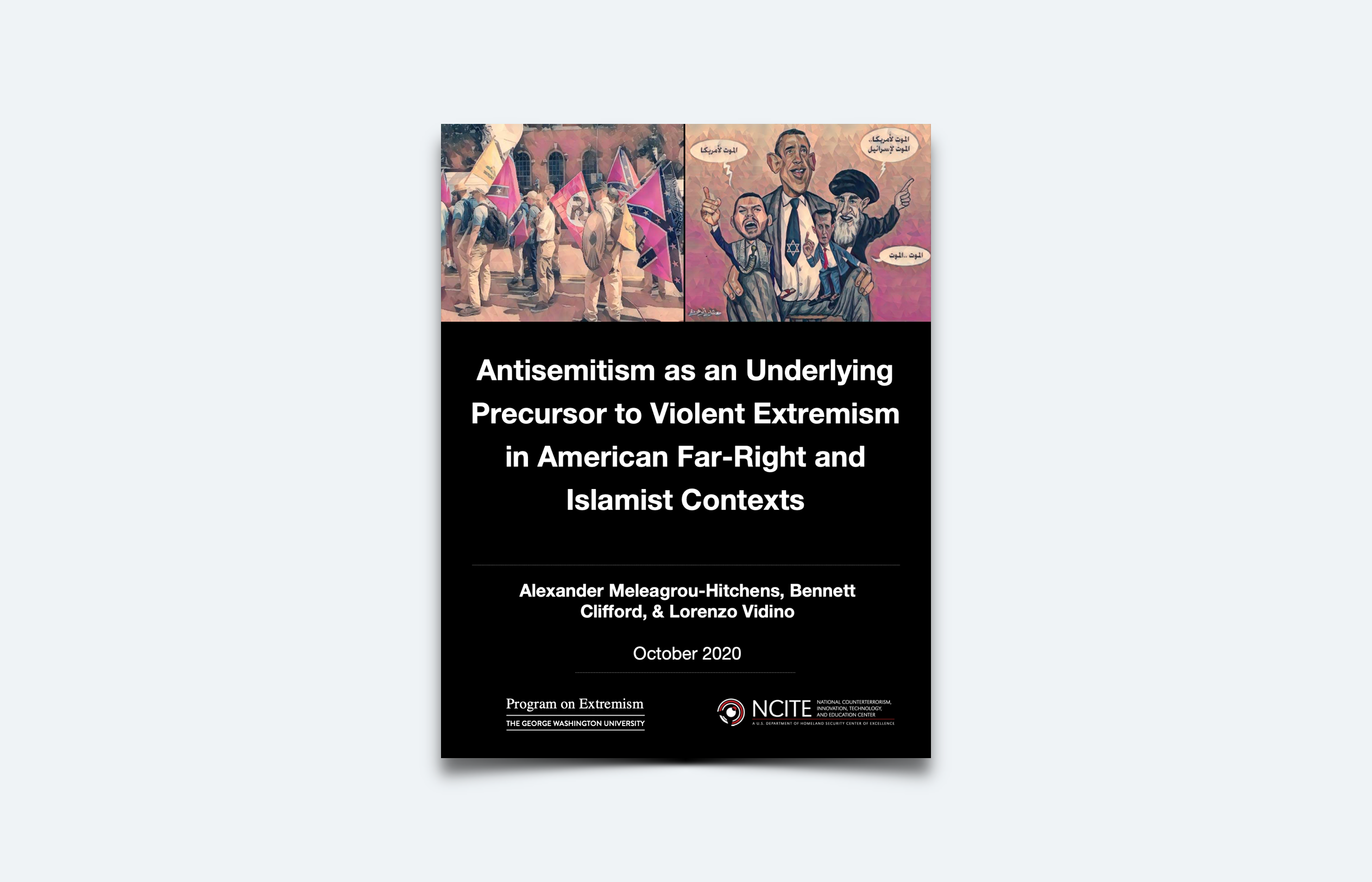Antisemitism is pervasive throughout several categories of American extremist movements, both violent and non-violent. American extremists incorporate antisemitic tropes and narratives in every level of their worldviews, using them to help construct “us/them” dichotomies and wide-sweeping conspiracies that are essential to their movements.
During the past several decades, the American extremist movements that have been among the most violent—specifically, far-right and jihadist groups—have used antisemitism to target Jewish people, Jewish houses of worship, Jewish community institutions, and Americans supporting the Jewish state of Israel.
Antisemitism, as a belief and world-structuring theory, can at times serve as a gateway issue for individuals into further radicalization to violent extremism. Nonviolent and violent iterations of the same extremist milieus often share antisemitic views as central elements of their belief system, and thus antisemitism constitutes a linkage between activist and violent extremist segments of the same movement.
Several case studies of violent American extremists, representing far-right and jihadist movements respectively, demonstrate that antisemitism can be an integral part of American extremists’ progression through the radicalization process and in justifying terrorist attacks.
Based on this report’s finding that antisemitism is foundational to multiple violent extremist movements in the United States, counter-extremism practitioners and scholars may consider incorporating antisemitism as a diagnostic factor for extremist radicalization.
- While there is no single profile of an American extremist, antisemitism has long been widespread among American extremist movements of multiple persuasions, acting as a least common denominator between extremist groups.
- Antisemitic beliefs often serve as a key entry point for individuals to radicalize, join extremist groups, and progress into violent mobilization.
- By using promotion of antisemitism as a factor in identifying key influencers and ideologues in extremist movements, Countering Violent Extremism (CVE) programming can isolate key nodes in extremist groups and debunk the narratives they promote without engaging in theological debates.
- Studying the role of antisemitism in extremist groups can assist scholars in identifying common themes between different types of extremism, as well as between non-violent and violent strands of the same extremist movements. This can improve analysis on the broader relationships between and within extremist groups.


